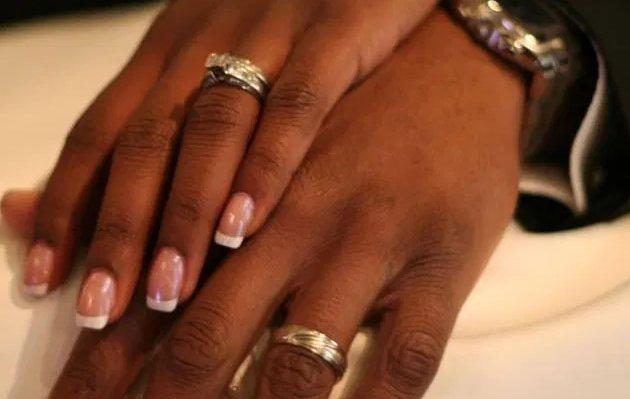By Thomas Sibanda – Mzala Tom
Modern Ndebele marriage practices are similar to other Bantu marriage practices in Southern Africa. Even though the pre-colonial elaborate marriage practices have since been modernised, the core traditional rites and pillars of marriage have been preserved.
In this article, we shall discuss some of the core traditional steps and practices that lead to marriage in modern Ndebele society.
Gift exchange: Once the relationship is ripe, the couple intending to get married exchanges gifts to demonstrate their love and commitment. The gift can be a piece of jewellery, a handkerchief, a tie etc.
Expression of intent to marry: The two then approach their respective elders to advise them that they intend to get married and are ready for the process to start. The elder could be an uncle or aunt. This expression is made in the absence of the other partner.
Thereafter, the elder will request to see the partner their niece or nephew intends to marry to clarify issues like their full names, which village they come from and who their parents are or what they do for living, and any other such pertinent information.
Ukucela umlilo or ubuhlobo, asking for a relationship, is the next stage. The young man appoints his negotiator, umkhongi, commonly known as idombo, a TjiKalanga name for umkhongi. This is done with the help of his family elders. A negotiator can be an uncle or trusted family friend and must be male.
The negotiator will then meet privately with the girl’s aunt with a verbal or written message requesting a date to meet them. On the first meeting date, the girl’s family will bring all the girls in the family for the negotiator to identify the specific girl they came for.
Once the correct girl is identified, the others are dismissed. The girl is then asked to produce something she exchanged with the young man to prove the relationship. Once the elders are satisfied with the evidence, the young man is also invited in to be seen, ukuvela.
This meeting sets the stage for the marriage negotiations. The date and preliminaries are usually discussed by the aunt and the negotiator who then set a date for the marriage negotiations. Once the date is set, the following stages follow. In most cases, the marriage requirements are also presented to the negotiator at this meeting.
Ukungena ekhaya is the process where the man’s delegates led by the negotiator will then go to the girl’s house on the agreed date. They must be punctual or else they will be fined for coming late. Upon arrival they wait outside until they present a monetary gift to come in. This gift is known as ungenekhaya.
The delegates cannot announce their arrival or knock at the gate. They should wait patiently until a plate is presented to them to ungenekhaya. They should also not chat as that is disrespectful. At times they are made to wait for hours just to test their patience.
Isivulamlomo: Once they are permitted entry, they are expected to offer cash to allow the bride’s family to open their mouths and talk to them. This signals that the negotiations are about to start. Isivulamlomo is a symbol of respect and commitment to negotiate.
The introduction kangaziwe: Once isivulamlomo is accepted the negotiator is asked why they are here to which he explains their purpose. The ceremony will only start once the girl confirms her lover’s name and shows all the gifts, she received from him.
The young man is called in from outside solely to be seen and to confirm the identity of his lover. Thereafter, he is excused from the meeting, and he shall rely on the negotiator for any further updates.
Now that the young man’s family is known they are then expected to pay ukangaziwe usually one beast or the cash equivalent. Once this is accepted, both families now officially know each other, and a relationship is formally built.
Other items and gifts that the delegates bring are ijazi likababa, a special long coat for the girl’s father, ingubo kamama, a special blanket for the bride’s mother and other gifts like whisky and groceries, depending on what the girl’s family requires.
Once the above steps are completed, the relevant payments made and gifts presented to the girl’s family, the groom is now recognised as a son-in-law umkhwenyana and the girl is recognized as umalukazana, a daughter-in-law, by their respective in-laws.
Umthimba, the wedding celebration then follows, and the girl is accompanied to her in-laws where she will start her new home. Usually, the aunties and other elderly women will counsel and advise the bride on how to conduct herself to build a strong marriage. This process is known as ukulaya.
Sometimes that is all done on the same day. Others prefer to conduct it before the bride is handed over to her new family. Nowadays people charge lobola at the family negotiations and expect part or full payment of the lobola before the bride can move in with the groom or as a prerequisite for a wedding. However, this is contrary to the traditional lobola principles and practices as discussed below.
For more history and heritage content please follow my X-/Twitter page: @RealMzalaTom and my Mzala Tom- History & Heritage channel on WhatsApp using this link: https://whatsapp.com/channel/0029VaejGC3It5s2uGSYbL1r


This is similar to the Shona tradition though it has been bastardized severely after Uhuru attainment..